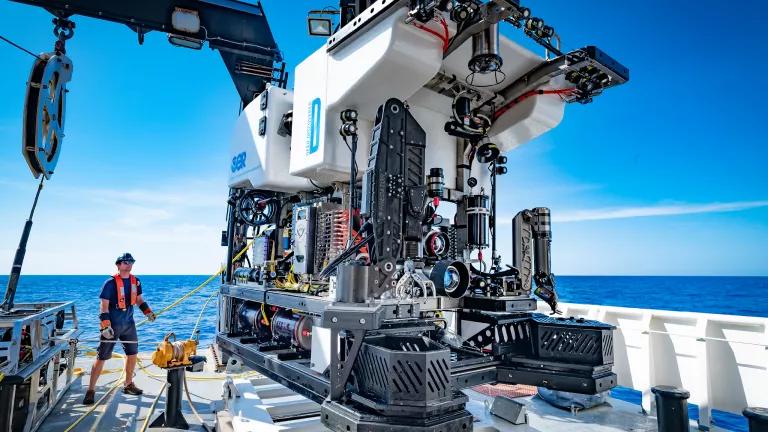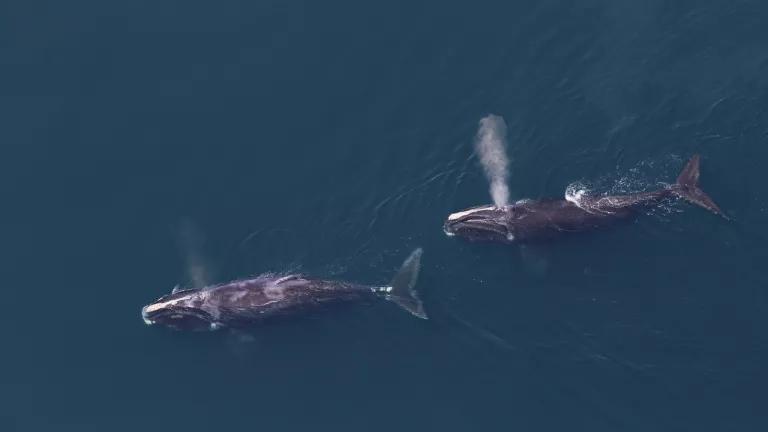In the Florida Keys – a place defined by its ocean environment and where the economy’s health is directly reliant on a healthy ecosystem – the community is anxious to know whether or not oil will reach their shores, what the impact will be on their unique and precious corals, seagrasses and mangroves, how the oil could affect the abundant wildlife, and how they can help prevent this ecological treasure from harm.
Last night, NRDC and Oceana hosted a conference for the Florida Keys’ community – called “The Gulf Disaster & the Florida Keys: What Are the Environmental Impacts & How to Help” – that was designed to answer these questions.
At the conference, Florida scientists discussed the current understanding about the Gulf oil spill’s potential impacts, should it reach the Florida Keys’ coastline and national marine sanctuary, and local volunteer and response effort officials described their work to prepare for the disaster and offered ways for the public to engage in monitoring and spill response.
Coming on the heels of the Administration’s questionable reassurances yesterday that the worst of the Gulf disaster may well be over, the audience and panelists instead expressed concern about declaring victory far too soon and reiterated that we need to remain vigilant for impacts from this spill and proactively plan to improve our response capacity for future spills.
A few take-away lessons from the event follow:
Thankfully, to date, the Florida Keys has been spared from oil on its shores. However, it’s important to be vigilant because we’re not out of the water yet. There is much we do not know about the path and fate of the submerged oil plumes and what the future will hold. While we hope that this oil will not reach the area, we remain alert for impacts.
- Seagrass beds – which cover nearly 95 percent of the Keys' shallow water ocean floor – are more resilient to oil impacts than, for example, the area’s mangroves, however, “The seagrass community of crabs, shrimp, small juvenile fish and other marine life of great biological and economic importance, are very susceptible and would be killed [by oil]." – Jim Fourqurean, Professor of Biology, Florida International University
- “The real threat to [the area’s marine mammals, like manatees and dolphins] are respiratory problems due to the inhalation of the [oil] fumes concentrated at the ocean surface where they are forced to breathe." – Robert Lingenfelser, President, Marine Mammal Conservancy
We are just beginning to tally the huge costs that the BP spill has had on the Gulf region’s marine life. We know that what happens elsewhere to the marine life in the Gulf will affect the Keys’ marine life and we are only starting to learn about the fate of fish and other species from the months of oil exposure. The environmental legacy of an oil spill can last decades, if not lifetimes, and incur significant economic losses for coastal communities, whether directly affected by the oil or not.
- "Fish-eating ocean birds, like frigates, pelicans and terns, don't have to be physically oiled to be harmed. By eating contaminated bait fish over time, they can bio-concentrate pollutants, [like heavy metals and polycyclic hydrocarbons] that can cause long-term health problems and death." – Michelle Anderson, Director, Key West Wildlife Center
- "Bluefin tuna … not commonly found [in the Keys] actively spawn in the central Gulf ... where the major effect of this Gulf oil spill disaster is being felt. Because their eggs float and the young fish larvae are very dependent on clean, open ocean water, oil is a killer to them." – Patrick Rice, Dean of Marine Science and Technology, Florida Keys Community College
The partnerships and relationships with individuals and organizations as a result of the BP spill is one of the silver linings to this disaster. We need to continue to plan and work together to protect our unique resources.
- “The take home of this event [the Gulf disaster] in the Keys is – we had a plan, and we assembled a great team of federal, state and local government partners experienced and use to working together in emergency situations. What we didn't have was the connections to the wildlife rehab groups, citizens and community that wanted to help and be better prepared to address the environmental impacts that would surely occur from the spill if it reached the Keys. … Don't wait for the next emergency to get involved and prepared.” – Captain Pat DeQuattro, Commander, United States Coast Guard, Sector Key West
In the coming weeks, NRDC will be posting segments from the conference so that those outside of the Keys’ community can hear about the impacts that oil can bear on marine habitats and wildlife.




